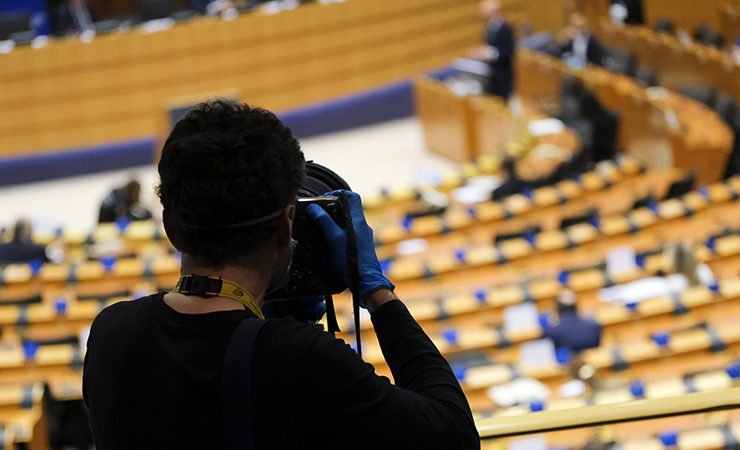The COVID-19 pandemic proved to be a significant challenge for independent journalism as the number of threats and attacks recorded by the International Press Institute’s reached 620 globally.
The COVID-19 Press Freedom Tracker was set up to record instances of violations of media freedom throughout the world, after the onset of the pandemic.
Just over one year later, the statistics show that both media outlets and individual journalists have faced high levels of harassment and attacks just for doing their job.
Globally, 34% of attacks were physical and verbal by members of the public, and 33.5% were related to arrests and charges filed against media workers by governments. A further 14% of cases were related to restrictions on accessing information, imposed by authorities.
The report notes: “An alarming number of physical and verbal attacks on journalists were recorded in Europe. A total 106 cases of attacks have been registered, of which more than 80% were by members of the public.”
In Europe, these attacks were predominantly verbal, followed by physical attacks, online intimidation or smears from members of the public. Next were the verbal attacks and intimidation by authorities.
Particularly problematic countries in Europe included Hungary, Romania, Spain, Serbia, Bosnia and Herzegovina, and Turkey. The latter currently has 54 journalists behind bars and refused to release any despite the risk of COVID-19 infection.
There were also 31 cases where European media were forced to take down an article or were banned from publishing something, 11 cases where officials restricted access to press conferences, eight cases of Freedom of Information requests being suspended, and six instances where journalists had their accreditation revoked.
Also concerning was the level of arrests for fake news, arrests under other laws, civil lawsuits, and criminal investigations. These totalled 35 for the duration of the reporting period.
IPI noted that the Tracker was unable to capture all violations during the year, but that the data presented “clearly illustrates the pandemic’s impact on journalism around the world”.
Malta featured on the Tracker following an accusation from the Institute of Maltese Journalists that the Broadcasting Authority had censored the media. The IGM said that questions from the press were cut from footage aired on Television Malta during a press conference with deputy prime minister and Health Minister Chris Fearne.
The data presented by IPI reflects a growing concern over the increase of attacks on media workers. The Coalition for Women in Journalism reported that in the first three months of 2021, attacks on female media workers increased 102.8% when compared to the same period in 2020.
In March alone, there were 111 cases of violence, arrest, detention, verbal harassment, sexual harassment, assault, and four deaths.












